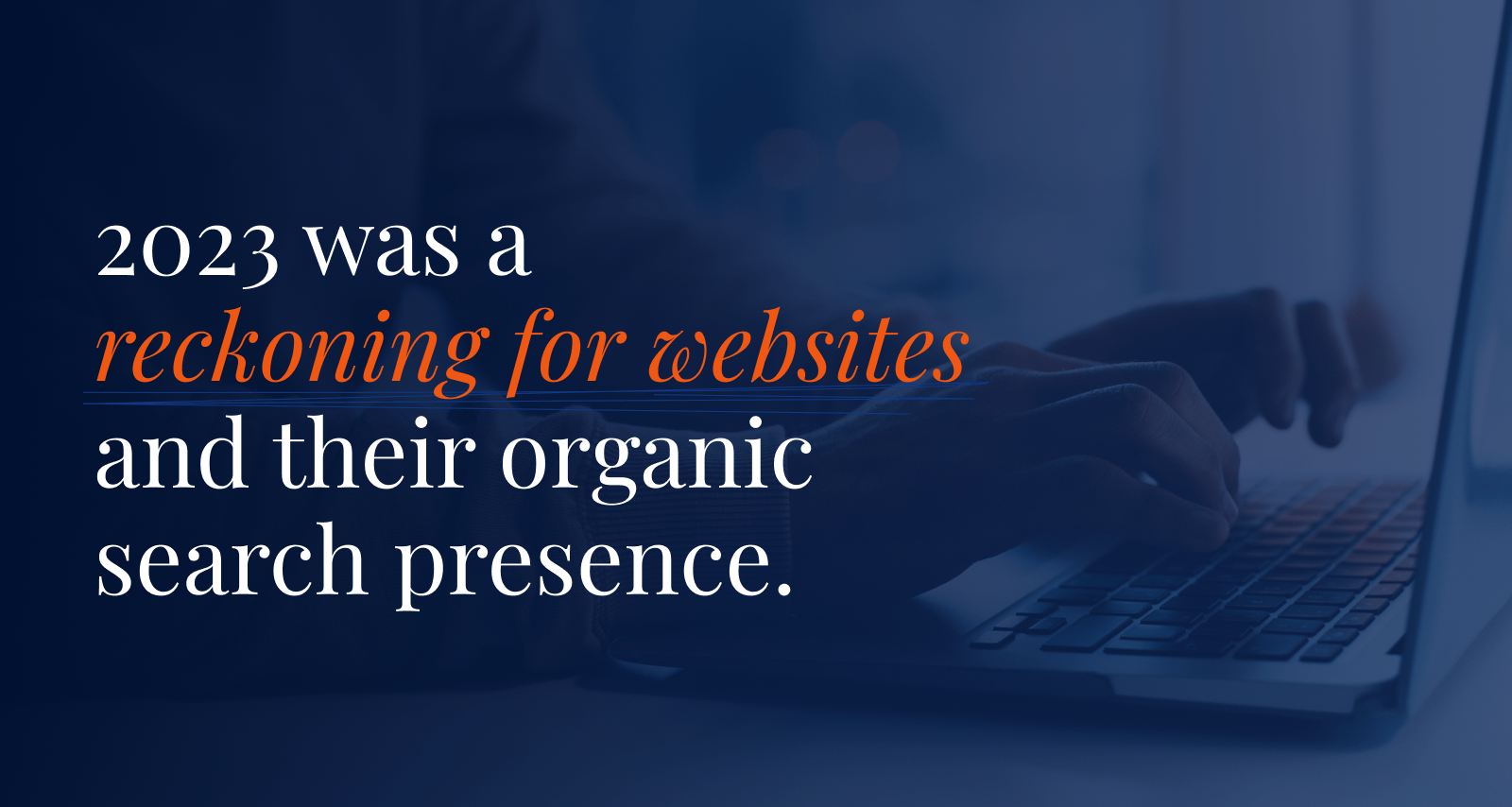How Helpful is Your Content? Google May Not Agree Anymore.
Published by Spinutech on February 28, 2024

Did your website experience a decline in organic traffic last year?
Well you’re not alone.
From conversations we’ve been having with prospective clients, one thing seems to be true for a lot of brands today: 2023 was a reckoning for websites and their organic search presence.
What precipitated this downturn in organic search? There is more than one answer.
The Short Answer: Google’s Definition of “Helpful Content”
Google made a number of updates to their algorithm last year. The number of updates wasn’t out of the ordinary for Google, but the content of the updates impacted a wide swath of industry categories across the web throughout the year. Specifically, algorithm updates surrounding “helpful content,” which shook the foundation for a lot of websites.
AI tools for generating content, like ChatGPT, also became widely accessible at the consumer level last year. If we were living in the information age before, AI-generated content has ushered us into the age of information overload. Suddenly, generating content is easier than ever for website owners willing to utilize these emerging technologies.
But this saturation of content has consequences, leading Google to tighten the definition of what content it considers “helpful.” After all, Google’s commitment to people-first content is demonstrated in their E-E-A-T acronym, which stands for Experience, Expertise, Authoritativeness, and Trustworthiness. “Experience” was added as part of Google’s effort to reward web pages where the author has incorporated firsthand or life experience.
What Websites Were Most Impacted?
When we’ve had the opportunity to pop the hood on websites that saw a decline in organic traffic last year, we’ve identified a number of characteristics they seem to share.
First and foremost, these websites don’t clearly and effectively explain their products, services, or solutions, especially in comparison to websites that are winning for the same keywords. It’s the antithesis of good SEO, which is about being able to articulate what your business does, the outcomes of that work, and the benefits to your end user. These websites also neglect to leverage reviews and case studies to demonstrate the value of their work.
Other common characteristics of negatively impacted websites include:
- Failure to establish a clear information hierarchy and information paths for users to pursue and click through
- Slow performance and inconsistencies in the way the site loads
- Not adhering to industry SEO standards when developing the content for their website (e.g. location pages for local businesses, product reviews and page hierarchy in ecommerce, informational content in search categories, etc.)
What Can You Do to Turn the Tide of Your Organic Traffic?
It’s simple: Partner with an SEO team that understands best practices and how to make data-driven decisions that are going to move the needle.
Like the SEO team at Spinutech, for example.
The foundational mistakes that are leaving your website vulnerable to Google’s helpful content updates are correctable. You just need SEO strategists who know what they’re doing and can tailor their strategy to your specific needs, pace, and resourcing.
If you’re ready to put 2023’s organic traffic in the rearview mirror and start charting your website’s return to organic glory in 2024, let’s chat.